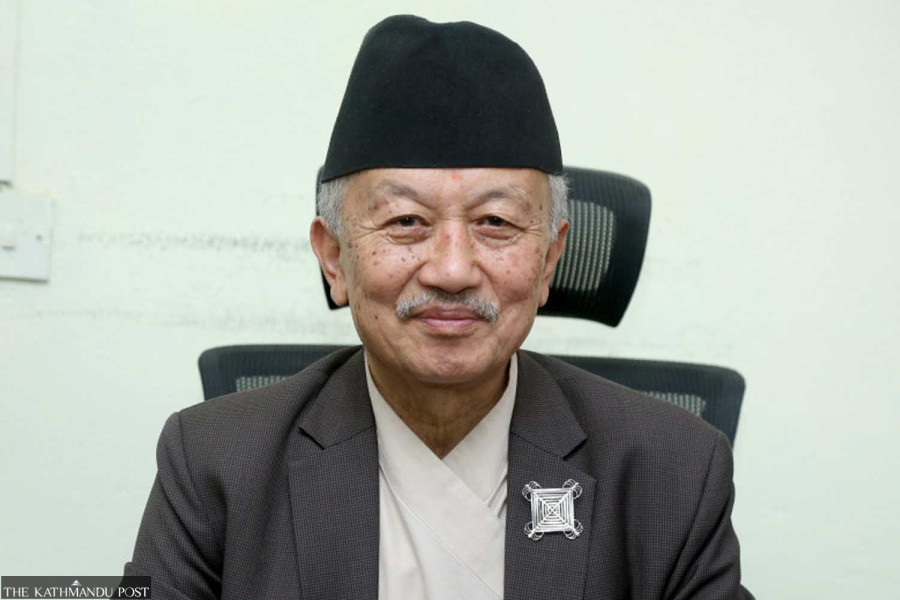Politics
Speaker of the nation
Nembang steered Nepal’s fragile transitional democratic process until the charter’s promulgation in 2015.
Dinesh Kafle
In the aftermath of the 2006 democratic movement, when a new generation of Nepalis had begun to take a deep interest in political affairs, Subas Chandra Nembang, as the Speaker of the reinstated Parliament and as the chairperson of the twin Constituent Assemblies that followed, exuded an aura of grace and authority rivalled only by his predecessors Daman Nath Dhungana and Ramchandra Paudel.
It is this troika that has elevated the public legitimacy of the Speaker’s position in Nepal’s parliamentary politics after the restoration of multiparty democracy in 1990. Nembang, though, holds the distinction of being a classic representation of how a Speaker should conduct oneself, thanks to a highly mediatised political culture in transitional years in the latter half of the aughts.
In public life, Nembang carried that aura almost throughout the decade when he steered the debates in the reinstated Parliament and constituent assemblies and up to the promulgation of the Constitution of the Federal Democratic Republic of Nepal in 2015. This was a decade when holding a half-decent public debate on the questions of equality, justice and peace was inconceivable, as cardinal emotions had replaced intellectual rigour. This was when the misconceptions around identity politics risked turning it into a Frankestenian monster rather than a tool for bridging deep-seated ethnic divides. As people claimed the streets and politicians broke chairs in the Assembly to pursue their stakes in the identity pie, Nembang pleaded: “Mananiya sadasya, basnus! [Sit down, hon’ble member]”.
All this turmoil came to a logical end when the second Constituent Assembly passed a new constitution, partially ending a fractured peace process. It was this moment that solidified Nembang’s role as a seasoned constitutional figure, having transgressed the narrow ideological definition of a politician. And it was an apt moment for him to retire, having inscribed his name in the annals of the country’s constitutional history with golden ink. But Nembang did the opposite.
In returning to active politics after promulgating the constitution and playing a spokesperson to KP Sharma Oli through the twin Parliament dissolutions, Nembang orchestrated his own fall from grace. Standing firmly behind Oli and solidifying an antithetical position to the ideals of secularism and constitutionalism, Nembang gave the impression that his well-known grace was just a paraphernalia.
The unravelling of a partisan politician behind the mask of grace in the last few years of his life should, however, in no way shadow Nembang’s contribution to constitutional democracy. Even as the first Constituent Assembly failed to deliver a new constitution and the second one stood on the verge of dissolution, Nembang continued to press all parties to find a middle ground. It was no minor disappointment that the man who helped build the constitution defended Oli in the latter’s indefensible act of dissolving the House.
Having transformed from a devout constitutionalist to an anti-constitutional propagandist, Nembang had defended the House's function to operate without obstruction in the last leg of his political life. Of late, he had become a go-to legal guru in parliamentary democracy and constitutionalism for a young crop of leaders representing various political outfits in Parliament. This change did not come easy.
Even as he went out of his way to defend the party’s transgressions, he remained a somewhat mysterious figure in the party. The leadership was certain that Nembang would not betray the party’s cause, but deep down, the top brass considered him a closeted admirer of a brand of secularism adversarial to Hinduism. Added to this was his branding as the man who inserted secularism in the interim constitution at the last minute, putting him at the threshold of trustworthiness and suspicion among his peers.
The most poignant reflection of his position in the CPN-UML was evident in his last-minute fielding as the party’s presidential candidate. He was never the first choice for the post, but when the party’s gathabandhan with Pushpa Kamal Dahal’s Maoist Centre fell apart and the trouncing of a UML-backed candidate was a foregone conclusion, Nembang was swiftly given the ticket as a janajati figure. To his credit, Nembang swallowed the insult and played along gracefully, as always, even as he knew that his political career was being sacrificed.
For a man who had remained invincible at the polls throughout his political life, the defeat at the presidential polls was an entirely avoidable act. If it helped reinstate his position as the party’s seasoned lieutenant, it reinforced in the public’s mind the image of a constitutionalist who dirtied his hands in politics and lost his exalted position. It is, however, his personal loss, and there is no good reason for anyone to push him to the footnotes of history.
After all, Nembang steered Nepal’s fragile transitional democratic process through troubled waters and oversaw the promulgation of a foundational text for the Nepali nation. For this, Nembang, who died on the morning of Tuesday, September 12, at 70 years, deserves our gratitude—even from those who rightfully question the constitution’s flawed provisions.




 22.65°C Kathmandu
22.65°C Kathmandu















